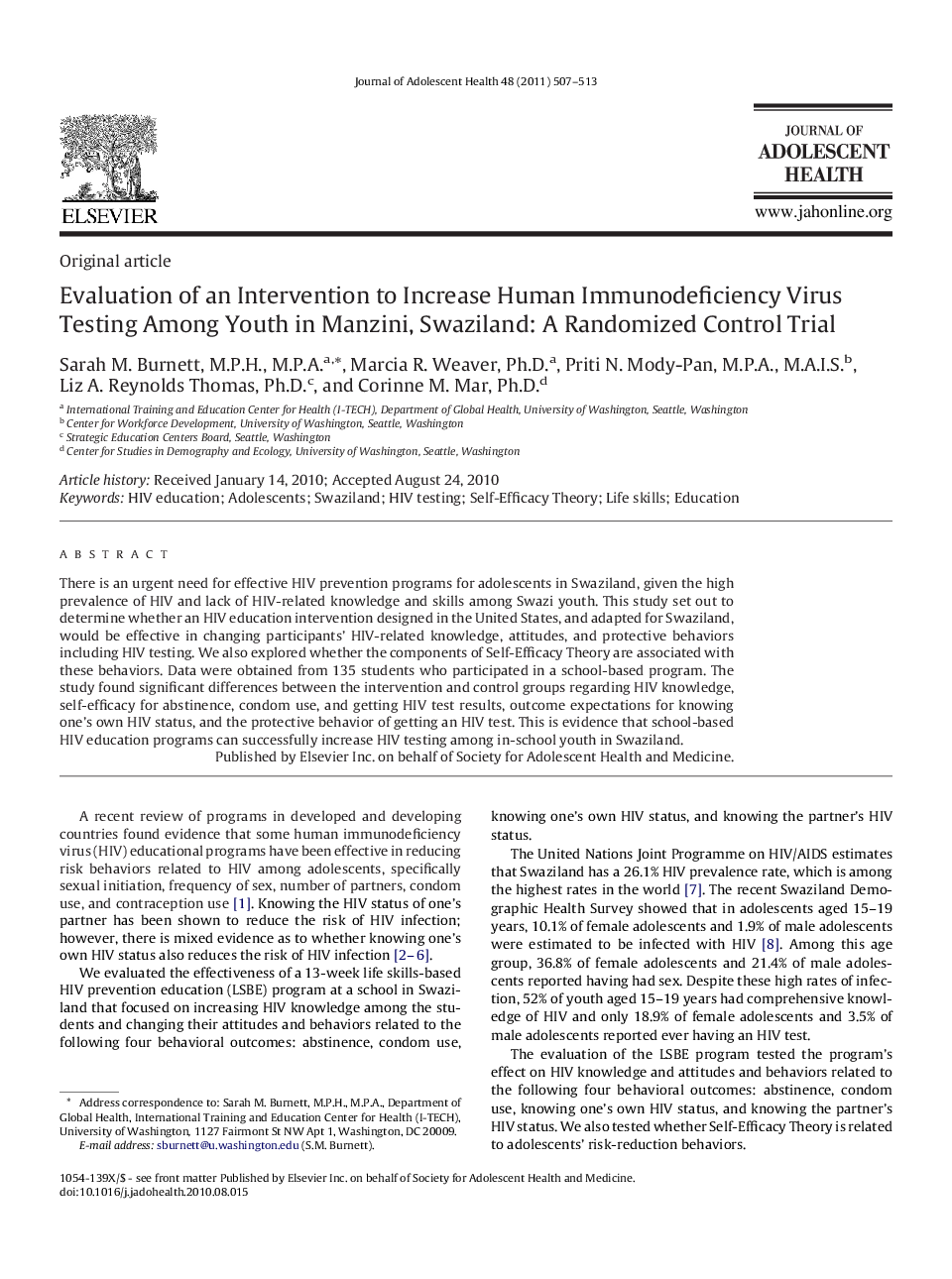| Article ID | Journal | Published Year | Pages | File Type |
|---|---|---|---|---|
| 1080013 | Journal of Adolescent Health | 2011 | 7 Pages |
There is an urgent need for effective HIV prevention programs for adolescents in Swaziland, given the high prevalence of HIV and lack of HIV-related knowledge and skills among Swazi youth. This study set out to determine whether an HIV education intervention designed in the United States, and adapted for Swaziland, would be effective in changing participants' HIV-related knowledge, attitudes, and protective behaviors including HIV testing. We also explored whether the components of Self-Efficacy Theory are associated with these behaviors. Data were obtained from 135 students who participated in a school-based program. The study found significant differences between the intervention and control groups regarding HIV knowledge, self-efficacy for abstinence, condom use, and getting HIV test results, outcome expectations for knowing one's own HIV status, and the protective behavior of getting an HIV test. This is evidence that school-based HIV education programs can successfully increase HIV testing among in-school youth in Swaziland.
